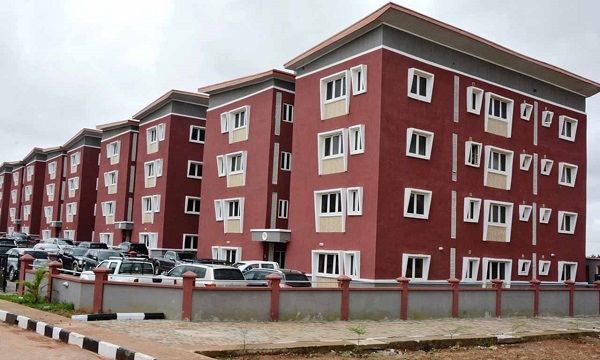Stakeholders have kept raising worries about the housing shortage in Nigeria, which is currently believed to be between 20 and 28 million units.
The shortage of housing has stayed unchanged for many years, despite the attempts by different governments to offer affordable housing to people with low and middle incomes.
A population of around 223 million, with the World Bank forecasting an increase to almost 263 million by 2030 and more than 400 million by mid-century, positions Nigeria to be the third most populated country in the world.
Concerns are rising among stakeholders that the present exchange rate, which has led to higher import costs, could result in a growing housing shortage in the coming years.
Fx, rising expenses of construction materials driving up the deficit – deficit
In a conversation with Daily Trust’s real estate specialist, Abdulrahman Shehu, he mentioned that inflation and the elevated naira exchange rate are still causing an increase in the price of construction materials, many of which are imported.
He stated, “This rise in costs has greatly reduced accessibility, even for homes designed to support low- and middle-income individuals.”
Although the government has made attempts, a widespread economic decline and increasing poverty throughout the nation have diminished the buying capacity of numerous families. A significant part of the population now finds it difficult to cover essential expenses, let alone think about buying a home, which hampers the success of new housing initiatives.
While the Renewed Hope housing project is designed for individuals with low incomes, the high cost of several units, some exceeding N30m, makes them inaccessible to the group the program aims to assist. This gap between the goal and the reality risks undermining the initiative’s effectiveness and reputation.
In a similar vein, real estate specialist Emmanuel Ogwuche pointed out that although there are ongoing government housing initiatives, Nigerians are still facing increasing rental costs and a long-standing shortage of housing, which continues to put pressure on city dwellers.
He stated, “The different policies implemented by the government aimed at decreasing the housing shortage are highly praiseworthy; nevertheless, their effects have not yet reached the typical citizen, as rent keeps rising in big cities. Even though the government has made attempts to close the housing gap through various policy measures, there hasn’t been a major improvement in the overall housing deficit. This absence of real progress is clear from the ongoing rise in rental prices, especially in urban regions, as often highlighted by the media.”
A successful approach would involve the effective execution and, above all, sufficient financial support for different housing initiatives to guarantee their timely completion. Throughout the nation, many empty and abandoned buildings exist, and these should be promptly converted into living spaces. To prevent the accumulation of properties, increased taxes should be applied to vacant structures. Additionally, the rapid provision of planned housing units is crucial for tackling the housing shortage and fulfilling the requirements of the expanding population.
A former president of the Nigerian Institute of Town Planners, TPL Steve Onu, expressed concerns about the proposed 100 social housing units in every local government area, arguing that Nigeria’s strategy for addressing the housing shortage is not adequately considered.
Similarly, Onu stated to Daily Trust: ‘The nation lacks a housing policy that tackles the housing requirements of Nigerians. Instead, it is merely providing employment opportunities to contractors.’
First and foremost, I believe the core of the policy hasn’t been properly considered. There are important questions that must be addressed: would people be willing to move from their ancestral homes to these new houses? Has the federal government supplied essential infrastructure—like electricity, water, and roads? What is the economic feasibility of these areas?
He mentioned that, “Stakeholders have observed that numerous Nigerians are not aware of these programs initiated by the federal government, hence there is a need for increased awareness campaigns at the local level,” he stated.
Provided by SyndiGate Media Inc.Syndigate.info).







